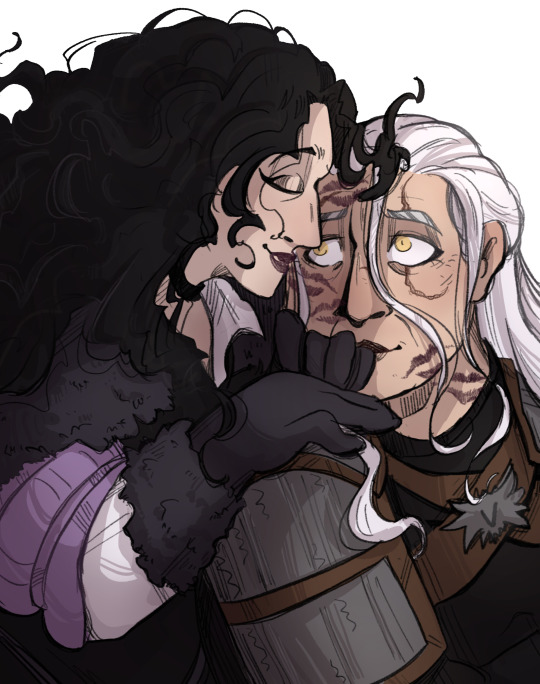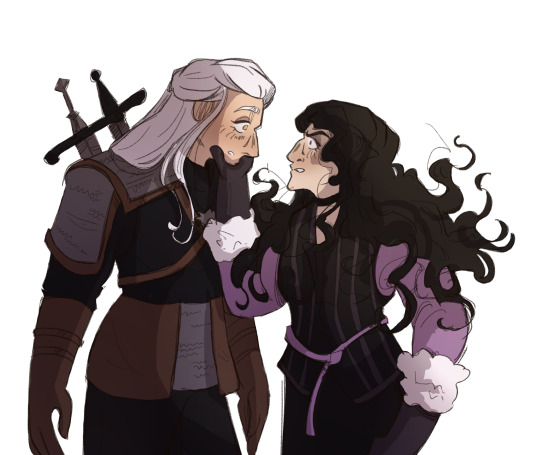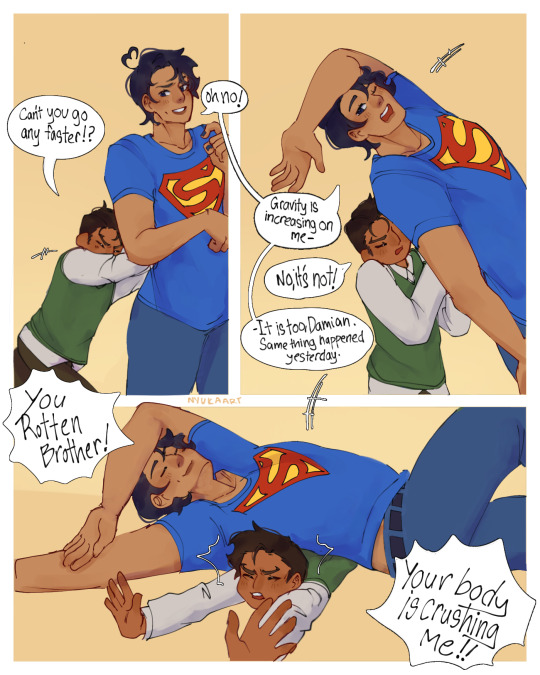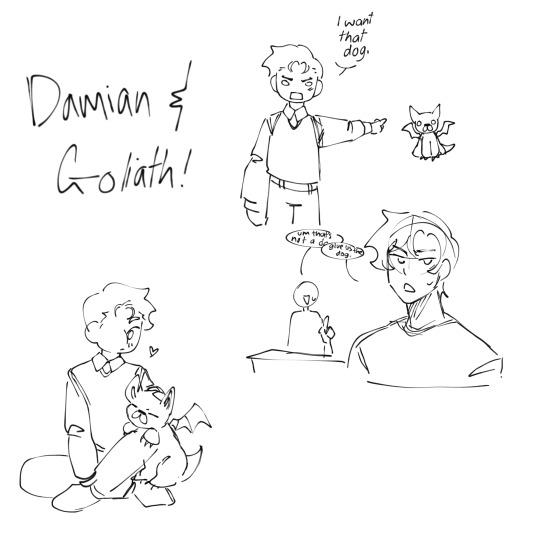30 years old | cis woman | queer lesbian | neurodivergent | white | 🇺🇸Main blog: @basil0saurus95-mainSide blog: @phantom-crossovers
Don't wanna be here? Send us removal request.
Photo
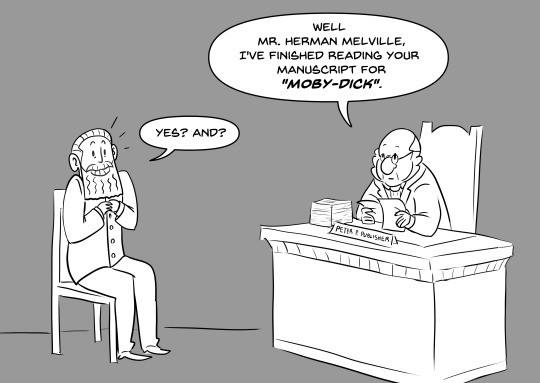

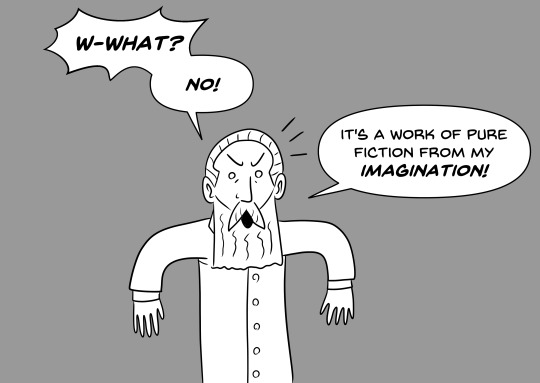
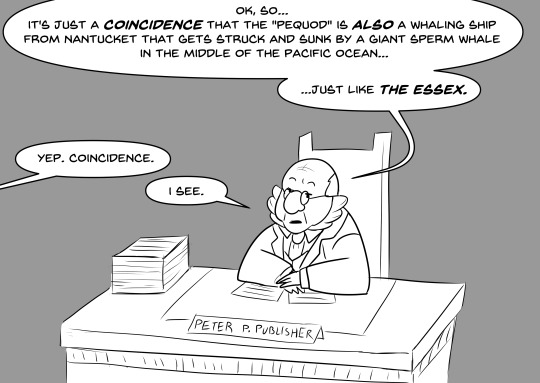
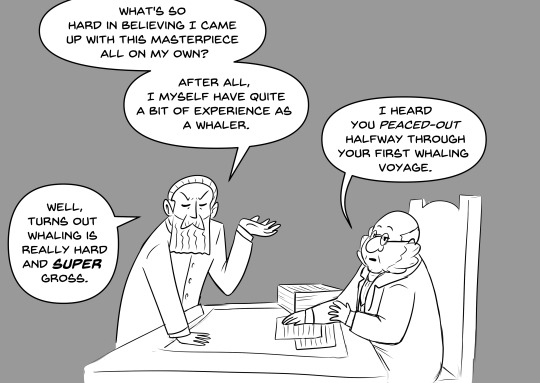
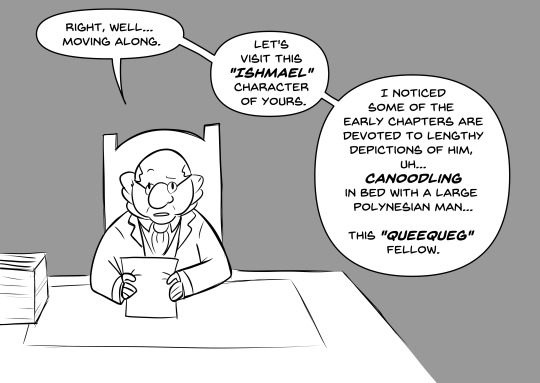
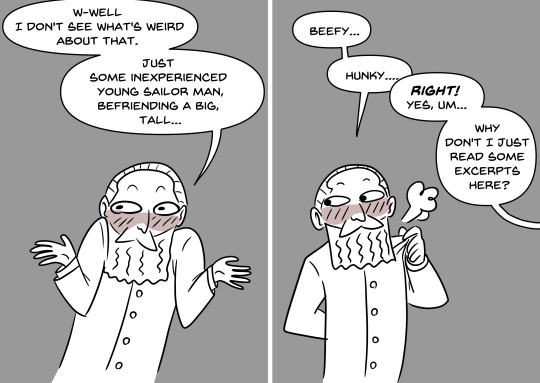
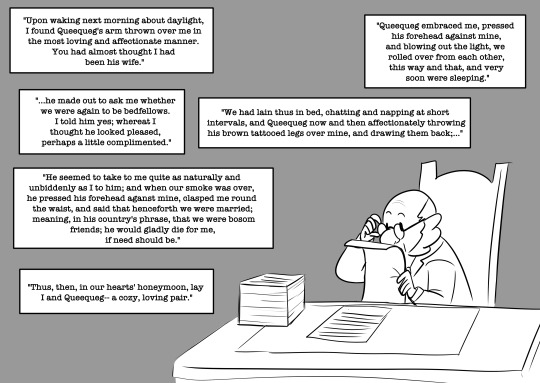
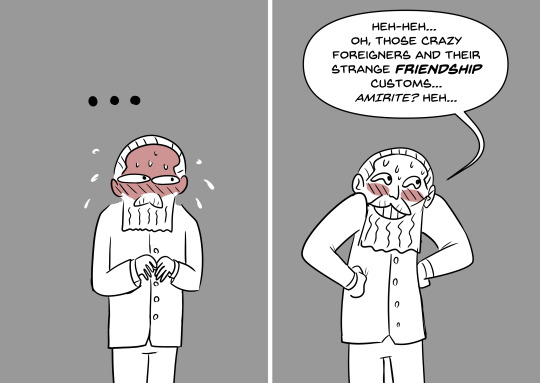
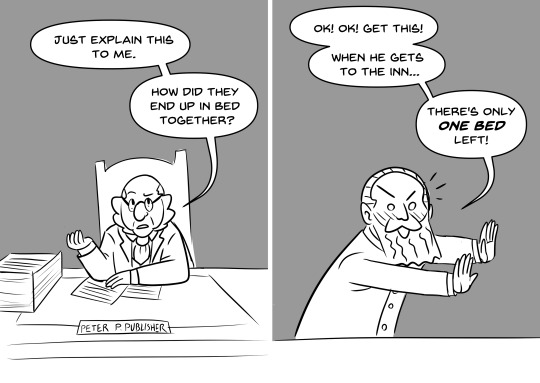
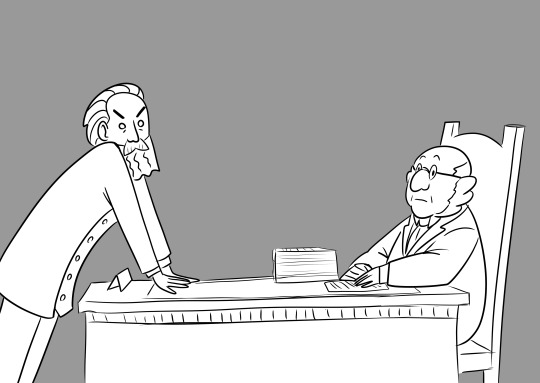
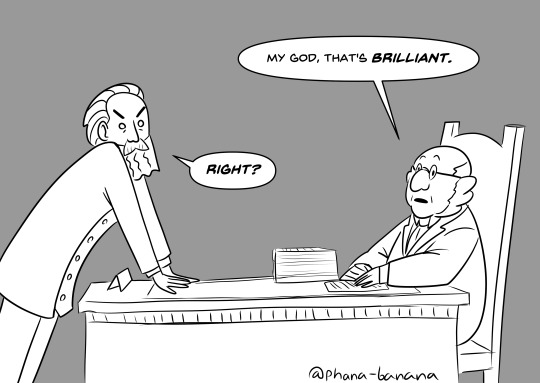
Look, I’m not saying if Herman Melville was alive today he would totally have an A03/fanfiction.net account… but that’s exactly what I’m saying.
Still went a little over my time limit for this one, but getting faster I think.
88K notes
·
View notes
Photo
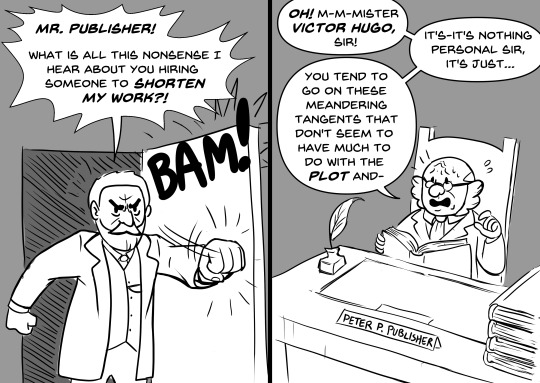
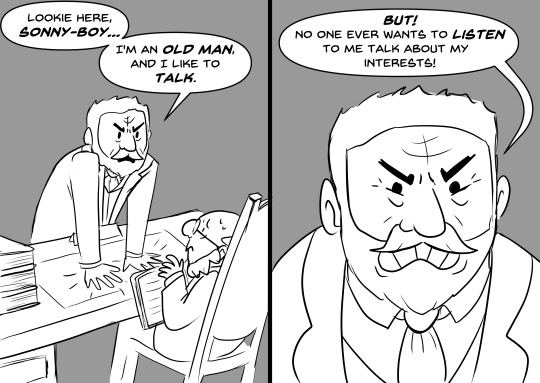
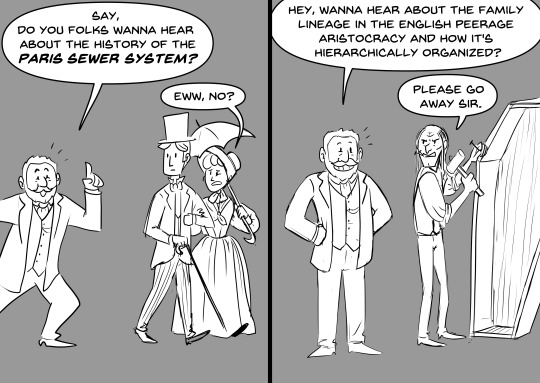
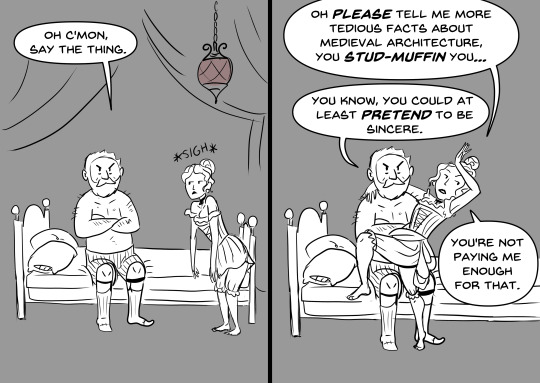
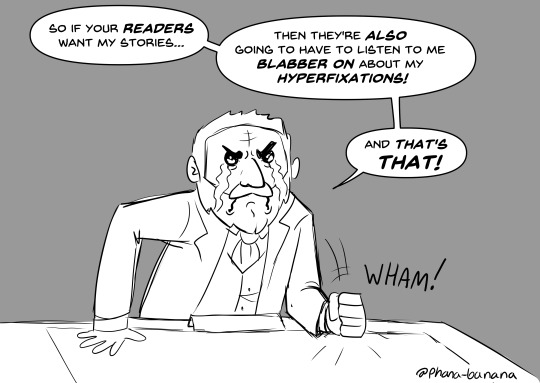
Please don’t haunt me ghost of Victor Hugo…
I’m trying to make myself draw faster, (which means letting go of some perfectionist tendencies which is haaard) so I came up with a little challenge for myself, to make a comic under a certain amount of time that I had to post, no matter how bad it looked. Well I went way over that time, but at least it’s under a day, so it’s a start. Thus, voilà! this shitty comic.
The next Ugly Club comic’s like 50% done, so stay tuned.
2K notes
·
View notes
Text
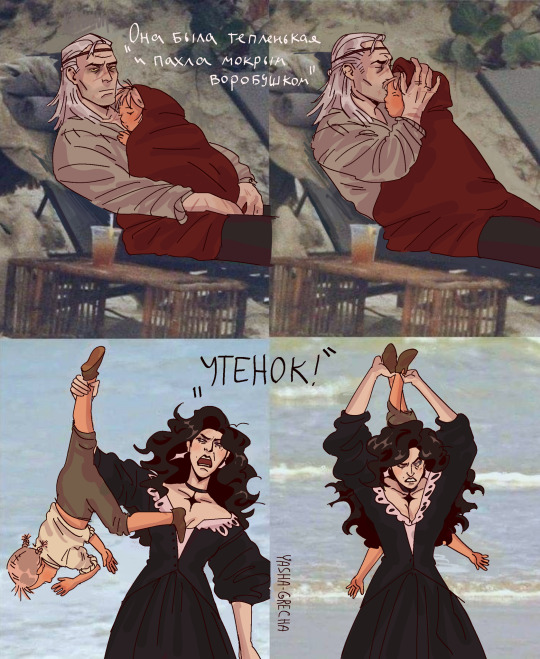
"She was warm and smelt like a wet sparrow" vs " ugly duckling"
2K notes
·
View notes
Text
Reading The Witcher books is like:
- swords and sorcery!
- poignant social commentary
- fairy tales... with a twist!
- All Women Are Queens
- boobies!
- Andrej Sapkowski's economics degree
9 notes
·
View notes
Text
I saved some of this from my longer rundown on thematic elements and textual approach because now we’re getting into the stuff everyone knows. We’re just actually getting into it.
The Witcher is Polish. It’s also a kind of fairytale.
Obviously. Everyone knows that. The folklore, visual sensibility in the 3rd game especially, everyone knows this is a Polish series with Polish creators. But do they really? Because I see a lot of Americans misreading this series (including whoever was behind the show). Here’s what was happening when these stories were first written:

And this isn’t a new thing. Polish resistance based on broad coalitions and the regimes they oppose stretch back basically forever. The brand of humane cynicism that kind of environment creates is distinct.
The Scoia’tael are a broad political coalition amongst nonhumans in the books. They’re losing. The novels are not sympathetic to this in the way you’d expect if you’re misreading them as a ‘noble savage’ trope or some other misrecognition. Here, losing to the authoritarians is just the sort of thing that happens. Ciri is sympathetic (and Geralt; he’s just old) because Ciri sees them through the eyes of a child who has lost her home. She’s projecting when she first encounters the Scoia’tael and promptly gets attacked by them. She’s not wrong. There is something noble in their fight, even as they’ve been driven to banditry and attacking our heroes (who are also all from marginalized groups and mostly nonhuman). There’s always something noble in fighting your own demise. But Ciri is young. She is projecting. And she’s really not wrong. Being right just isn’t enough.
This is no ‘both sides are bad’ defense of status quo. This is a resigned and honest look at the costs of fighting a war of attrition. How do you deal with it when you know the tyrants always find a way to win? When trade deals are more important than ‘human’ rights? When even fighting strips you of everything you were and could be? Because these novels are so specifically Polish, so grounded in their real loyalty to the resistant position from a materially-informed history, they hold up under these inquiries. There’s no flinching away from examination here.
This also acts on a literary level because everything here is a literary metaphor or allusion. Elves specifically are truly fae here. They’re not nice. They’re not the half-hearted attempts to reclaim an illusory wild past you see in most fantasy. They’re the terrible tyrants of an older age. They’re the fear of the other. They’re the desire for the other. The recognition of the other in self and the self in other. They’re what fairytales are actually meant to do for us, psychologically. Ciri’s focus on the elves is that series of recognitions. She’s seeing herself because she’s literally the resistant will made manifest and all the terror of potential tyranny. She’s Lara Dorren’s legacy carried through every human regime. Maybe Lara won after all.
28 notes
·
View notes
Text
A bunch of people who never read the novels are already crawling out of the woodwork to share their opinions(tm). But “I know the legend of the Witcher and the Witcher girl,” and I got you.
Consider this a highly specific explainer of some of what makes The Witcher novels interesting for those thinking of jumping into W3 or the novels now that 4 is in the works. My interests lie in what stories are doing and how, so this is analytical and not just a summary or reference guide. Wikis exist for that, and if you want to experience the characters you gotta go read the books. No real spoilers because I’m not focusing on plot here.
The Witcher novels are a very cool exercise in dual protagonists driving a convergent narrative operating on two distinct literary frequencies.
Geralt spends most of the books chasing Ciri in some capacity. He’s the man on the ground, getting stuck in personal problems and more ‘realistic’ situations and intrigues (sometimes your friends are also vampires; don’t be weird about it). His world overlaps with the mythic realm, but the sense is that he’s a regular person who keeps ending up in mythic situations. He approaches problems like the professional he is. He’s our guy. But he’s basically just a guy. When he tries to be a hero things tend to go really badly for him.
Ciri is a child of prophecy who befriends unicorns and gets roped into space elf dynastic disasters and visits camelot. She’s also trying desperately to get back to Geralt and Yennefer, her very normal parents. Her world overlaps with the mundane because she’s Geralt’s daughter by choice. She has to study swordplay with her Witcher family and practice magic discipline with Yennefer, but her problems are operating in the realm of myth and folklore. She’s perceived as the holy grail by men who want her power for themselves, a vessel to own and fill with a child. This is a misrecognition, and she remains beyond their grasp because Ciri is really the noble hero Geralt always wished he could be. When people forget that, things go very badly for them.
These two are also a split reference to Elric of Melnibone’s personas. Geralt is the White Wolf and Ciri is the dimension-hopping champion eternal. Their shared role is very consciously designed. Also just about everything is some kind of literary metaphor here.
The Narrative World
Let’s look at what the world-as-narrative is doing and how Witchers function in it.
The Continent exists on a fantasy world where realities have converged, and it greatly resembles Central Europe in its cultures, conflicts, and references. We’re talking Germany/France to the Russian border. This is an area that’s been repeatedly invaded from all sides for millennia. The convergence of spheres operating metaphorically as waves of invasion and overlapping cultures does quite a lot for the story in terms of conflict and setting up an interplanary reality. It also means that everyone is aliens.* Which is objectively the funniest way to do things in addition to providing a pretty fascinating moral bedrock. There’s no 1:1 fantasy race being mapped to real life groups here, though the series is strong in its references to concrete human evils in the real world. Everyone is people. Except monsters. Except when monsters are people too.
Witchers are people who are like monsters. Witcher is also a profession. They’re something that doesn’t fit into any neat category, and that’s the entire point of them. The ones who survive the trials that make them into witchers go on to live brutal lives killing monsters for coin or children to make new Witchers (the trials render them sterile; this is a real thematic beat. I’ll get to it). Witchers are the ‘other’ you’d expect to be scared of in a more conservative fantasy. But in this series, we see this world through the eyes of two Witchers, and we hear the exaggerated stories about their inhumanity, and we know they’re actually people with distinct experiences and perspectives and desires. We know how they feel, and that they’re not doing anything weirder than what everyone else in this world is doing to survive. So we know everyone else is people too. And that lends a very real layer of horror to the fact that by the time we meet our Witchers, most Witchers have already been massacred in a pogrom.
This isn’t as simple as ‘we’re the real monsters’ navel gazing. Over and over we see the different angles of everyone. One moment you’re looking at a strange and alien fae, the next a broken addict. The kindest man you meet is a vampire, and he’s done monstrous things he describes with philosophical eloquence. You’re asked to see the strange and uncanny and ‘other’ in everyone so you can also see the humanity. People are both, always. And the loss of one is the death of both. The novels enforce distinct narrative perspectives to this effect. Everything we know, we know through subjective and limited perspectives. This is a good series for folks fond of Bakhtin.
And if the fact that there are real monsters who aren’t sentient and are absolutely dangerous seems unfair. There’s also mad dogs and people who are beyond all reason and help too (the church is pretty fundamentally evil here and tends to instigate the pogroms. Wonder where a Polish author got that). The text doesn’t shy from the implications.
*except maybe gnomes. That might be a running joke. Nobody knows.
Btw if you’re here from my Dragon Age posts. Yes this is exactly what BioWare tried to immitate but ethically dropped the ball on by doing the exact thing the Witcher resists doing.
Witcher Family Planning
At the heart of this story is a family by choice and maybe destiny.
Geralt is a Witcher who survived an extra round of trials. A mutant among mutants. He’s an extraordinarily competent professional whose sense of justice and soft heart tend to cause him problems. He’s not nice. He’s kind of a boor. He’s very sulky. He loves deeply.
Yennefer is an outrageously overpowered sorceress who really regrets her inability to have children. She’s ambitious even by sorceress standards. Yennefer does things exactly the way she wants to, and that tends to cause her problems. She’s not nice. She’s imperious. She’s very petty. She’s ride or die for anyone she likes even a bit.
These two are the love of each others lives. This is a relationship, and I’m directly paraphrasing here, where two people who don’t know how to be soft try to be soft to each other. They’re bad at it. They keep trying.
Ciri is the lost Scion of every royal line on the continent. She’s also a Witcher. And a child of prophecy. And a dimension-hopping superhero. She’s also about 15 for most of the time we know her in the novels. She’s survived war, led a life of crime, been a gladiator. She’s clever and strong and rebellious and has an innate nobility that shames kings. She has Geralt’s compassionate heart, and she’s honed it to Yennefer’s cutting edge.
Gender & Power
I touched on this up at the top. Over and over again in these books, and in W3, we watch the patriarchal norms of the continent run smack into an interesting reality of the setting. Women tend to be the ones who are ‘first’ in power. There’s a lot of Mists of Avalon happening here. Sorceresses outdo their male peers. All these powerful men think they can have Ciri’s power for themselves by getting a child on her. They ignore that it’s the women in her line who have and wield the gift. They really ignore that her grandmother didn’t even need the gift to bring men like them to their knees. Patriarchy is a kind of willing blindness here. The desire to own and control makes the men of the series into fools who can’t see the obvious. That this isn’t their story.
Amongst Witchers, girl children are usually traded to the dryads for boys. This is left notably vague (another patriarchal blind spot? More likely than you think; there’s hints of female and nonhuman Witchers in the cat school) because by the time we meet our Witchers, the real secrets of their process have been lost. Ciri herself does actually take some of their potions and trials, which seem to potentially interrupt her puberty. Our Witchers are reluctant to subject her to what they went through, so she’s never put through the final trial. But this literally results in the reinforcement of Ciri’s gender by external forces. She is a woman, so that’s actually helpful under the circumstances. But. Fascinating stuff.
Sterility and Reproduction
Briefly. The novels constantly undermine the ‘replacement fear’ of dominant groups set on finding scapegoats for unsolvable problems. Witchers can’t reproduce, so they functionally adopt. Sorceresses may often be sterile too. Elves are particularly slow to reproduce. Women who aren’t mothers and men who live together and adopt and ‘others’ who are probably jealous and stealing our children… And just when you think this is a clumsy metaphor, the text smacks you with the fact that nobody reproduces as fast as regular old humans. This is explicitly about providing zero foundation for any of the bigoted anxieties around ‘nonhumans’, and the presence of sterile humans is here to complicate that very border. The text refuses to cede any quarter to attempts at justifying paranoia-fueled hatred and violence.
The Hero
Ciri is the unique point around which the novels’ tensions cohere. She loses her magical abilities in the books only to awaken to new and greater power. She’s human and nonhuman. A witcher who never completed the trials. Noble and criminal. She’s a woman who literally can’t be physically contained by this patriarchal setting. She’s entirely her own person in a world designed to break her. She’s a hero that eludes a hero’s limits over and over.
Nobody should be surprised that she’s The Witcher.
Novels in order:
Blood of Elves
The Time of Contempt
Baptism of Fire
The Tower of Swallows
The Lady of the Lake
Next Up:
I’ll do a write up with some grittier explanation for what happened between these novels and W3. The games are messy, so we’ll get into it now that you’ve got some themes and angles to roll around.
I may or may not touch on the short stories. Part of the wide misreading of the series is due to folks who’ve read a few of the stories and think that’s what it’s all about. This was also the problem with the show. Well. One of the problems.
22 notes
·
View notes
Note
CHEWING on ur art. what if u made dick ruffling robin tim’s hair? what then?
yeah what then?

556 notes
·
View notes
Text

sketching at the museum
prints available from June 9-16
34K notes
·
View notes
Text
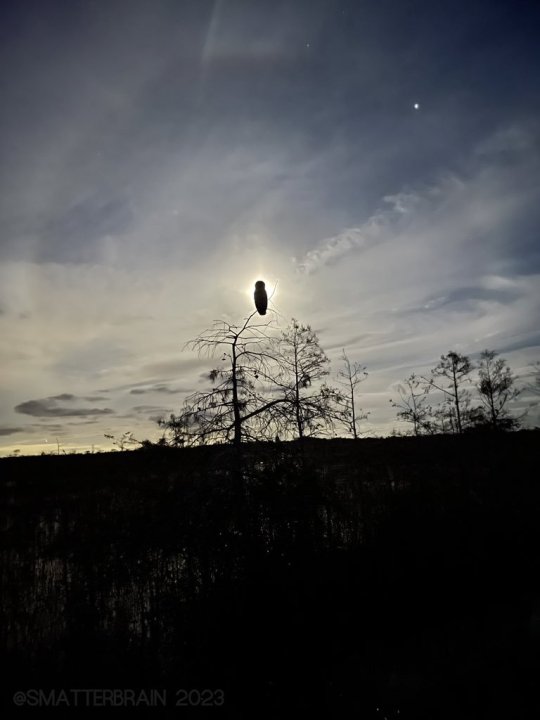
My dad and I came across the coolest sight on our camping trip: An owl haloed by the full moon rising.
3K notes
·
View notes
Text

this is from a "manipulation advice" video and it's just so fucking funny to me. why didn't I think of responding to insults like this
100K notes
·
View notes
Text

a message for workaholics + people who call sunfish “useless” animals
15K notes
·
View notes
Text
I swear to fucking god. I would claw out OneDrive from my computer if I could. I would burn down their servers if I could. I would run down their stocks to the ground if I could. I hope every single one of their workers gets a better offer from a competitor in the next 24 hours. I hope every single one of their light bulbs explodes at the same time. I hope every single carton of milk in their fridge will always be expired.
Stop backing up my fucking files.
Stop asking me to back up my fucking files.
Stop taking my fucking files off my fucking computer.
I don't want a fucking reminder in three fucking days. Let me fucking say no.
Fuckers.
29K notes
·
View notes
Text
Happy 10th anniversary, The Witcher 3!
This game is what inspired me to get into landscape painting more seriously. Here are the related landscapes I've painted throughout the years :)
all available as prints

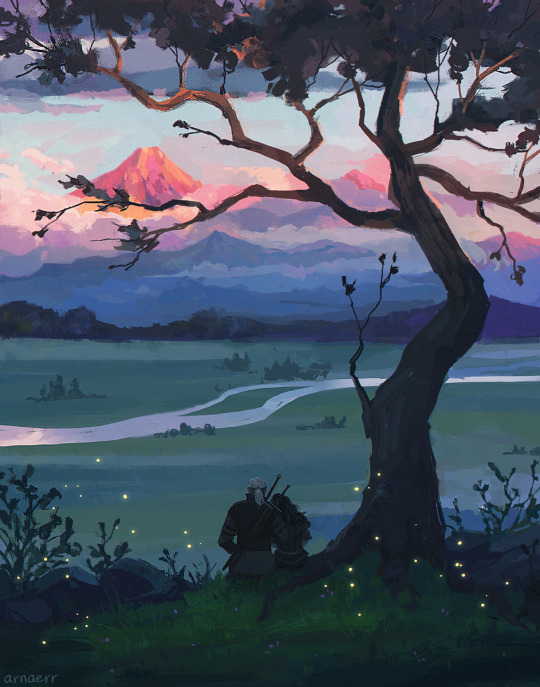
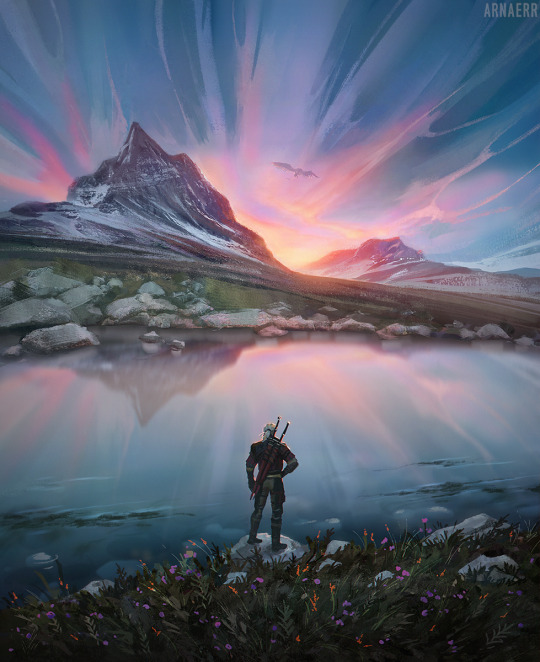
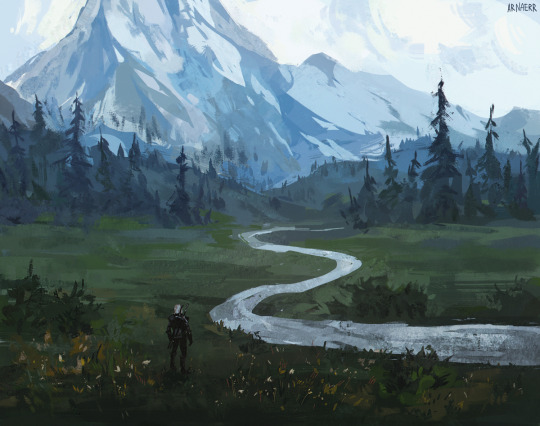

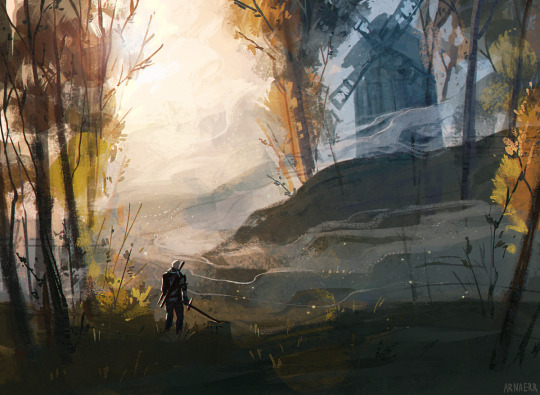
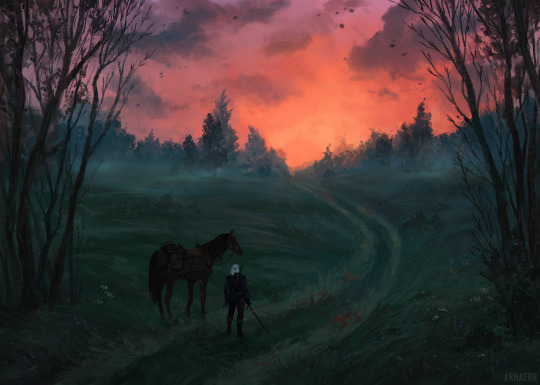
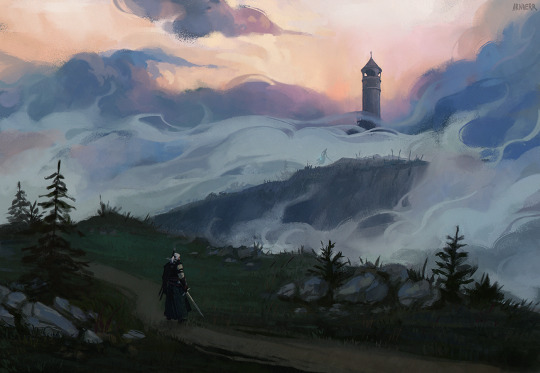
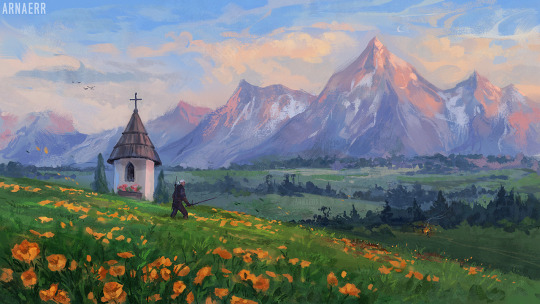
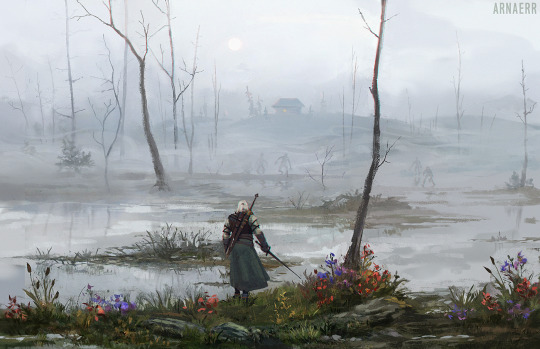
2K notes
·
View notes
Text

a homage to one of my favorite pieces of art ever made
2K notes
·
View notes
Text
Been reading a fic lately, Gut Feeling by Ao3time, where this basically happens 🤣
https://archiveofourown.org/works/49510567/chapters/124958458
Okay, so hear me out. There are species of animals that reject their offspring if they don’t “smell” right. Like something about the pheromones are off and thus the vibes are bad. You can’t be mine, you smell funny. Similarly, we know that hormones and neurochemical reactions play a large part in bonding between human babies and parents. Our brains are swimming in chemicals that have us looking at our squishy, decidedly odd-looking newborns and saying “it’s so cute, I wanna bite it.”
My dudes (gender neutral). My people. My fellow nerds. Superman initially rejecting his clone because he doesn’t smell right. The kid was in a soup of artificial, clone-making chemicals and he doesn’t smell like he should. But what the fuck is he supposed to smell like? Superman having no frame of reference for this crazy feeling, for this intense dislike of a person with his face, and struggling internally with it because he knows logically that this deep revulsion doesn’t make sense. Problem is, he physically can’t help it. Something about this kid makes his teeth itch and his fingers twitch.
Then the kid takes a shower and changes his clothes and oh. Why would I push him away? That’s my baby. Hate him? How could I hate my baby? My baby. My sweet, perfect, amazing angel baby. My baby. My baby. My baby. Mybabymybabymybabymybaby.
And it’s probably hilarious from the outside looking in, because Superman looked ready to light the kid on fire a minute ago and now he’s all gooey-eyed. No thoughts, just sappy smiles and burying his nose in the clone’s hair. He’s ready to pluck the moon from the sky and hang it on a string for his kid. It’s sweet and adorable.
It’s also completely, utterly terrifying. Seeing how quickly one of the strongest beings in the known universe fell victim to his own biology, how wildly the pendulum swung from one extreme to the other. Batman’s immediately planning a trip to the Fortress to gather intel on this reaction. How long does it last? Is it normal? Is it supposed to be like this? Does it have anything to do with the clone being a teenager and not a newborn? Would it be worse with a newborn? Does the League, does he need contingency plans for this?
And Superman—Clark recognizes the sudden shift, but can’t do a thing about it. He should be scared of how every concern in his mind gets swept away by this out-of-control hormonal response, but he doesn’t want to do a thing about it. He can’t help the smile plastered on his face when Kon—what a perfect name, a beautiful name for my baby, mybabymybabyMYbabymyBABYMYBABYMYBABYMYBABY—sighs contently in his sleep or scrunches his nose in disgust at new foods, new sensations.
Something in Clark’s eyes says “I don’t know what’s happening, help me,” but it quickly gets snuffed out by “I will flip this entire universe over if a single hair on my baby’s head is out of place.” And honestly? Yeah, it’s scary, but every parent he knows—Bruce included—totally gets it.
4K notes
·
View notes
